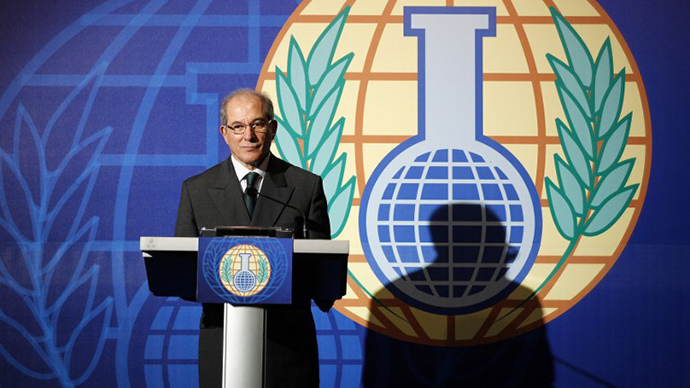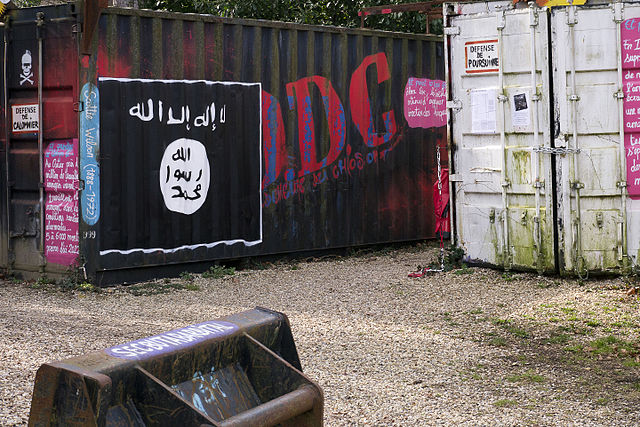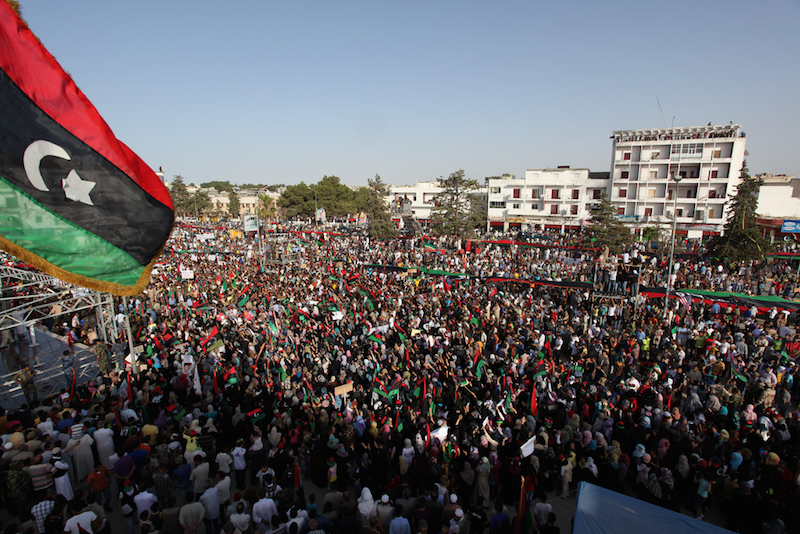The announcement that the 2013 Nobel Peace Prize was awarded to the Organization for the Prohibition of Chemical Weapons (OPCW) has caused immense global and political controversy. Although there is ongoing controversy over the allocation of the Nobel Peace Prize, the OPCW’s nomination is important because it recognizes the role of institutions in fostering global peace.
What is the Nobel Peace Prize?
The Nobel Peace Prize is awarded annually. Its recipients play a crucial role in fomenting peace efforts. The award was created by Alfred Nobel in 1901.The efforts of those who have “done the most or the best work for fraternity between nations, for the abolition or reduction of standing armies and for the holding and promotion of peace congresses” is essentially what the Nobel Peace Prize stands for. Currently, it is presented by a committee that is made up of five individuals who are appointed by the Parliament of Norway, in Oslo. Norway is one of the member states of NATO, a global union of countries that are committed to the peaceful resolution of disputes.
[captionpix align=”left” theme=”elegant” width=”300″ imgsrc=”http://natoassociation.ca/wp-content/uploads/2013/10/UN-chemical-weapons-exper-009.jpg ” captiontext=”UN chemical weapons experts in Damascus”]
The Global Debate: The 2013 Nobel Peace Prize Winner
On October 11 2013, in the midst of the Syrian Conflict and the state’s brutal use of chemical weapons against civilians, the Nobel Peace Prize was awarded to the OPCW for “its extensive efforts to eliminate chemical weapons.” While the OPCW is currently in Syria for the purpose of dismantling chemical stockpiles, many critics continue to oppose the OPCW’s as a suitable candidate for the Nobel Peace Prize. One of the ongoing heated debates is that the award should be given to an individual rather than an organization. An individual such as Malala Yousafeai, who stood up against the Taliban to fight for education rights for women. While it is clear that efforts made by Malala and the OPCW both promote peace, Norway and its Committee have chosen the OPCW because chemical weapons have a broad impact on other forms of social and political peace. Malala’s decision to stand up against the Taliban, or the right for women to receive education, does qualify as binding solidarity between nations and promoting peace. But, the OPCW’s efforts to get rid of chemical weapons is the first step towards eliminating standing armies and terrorists that usually act to prevent women from enjoying their rights.
The Destruction of Chemical Weapons: Why Now?
The use of chemical weapons has a long and violent history. The Geneva Convention of 1925 prohibited the use of chemical weapons after their disastrous impacts during WWI. The Convention did not, however, outline any laws regarding the production or storage of chemical weapons. The current Syrian crisis has renewed global awareness about the use of chemical weapons. The OPCW now prioritizes the elimination of chemical weapons through halting production and storage. In many ways, the current political climate offers more opportunities for the deployment of chemical weapons. With new technology and online terrorist activities, small terrorist groups have the potential to acquire and use chemical weapons. The complete eradication of chemical weapons (production, storage, and deployment) is the best solution for countering terrorism efforts that disrupt international peace.
The POWER of the Nobel Peace Prize
The OPCW’s recognition limits terrorist and non-peaceful activities in the international community. The award promotes the use of non-violent mechanisms to combat terrorist activities, and it is the first step towards eliminating standing armies. Not only has the OPCW eliminated 80% of the world’s chemical weapons to date, but it has also promoted peace among NATO member-states. However, there is still work ahead for the OPCW. It named April 2012 as the final date for the elimination of chemical weapons, but major nations such as the US and Russia have not yet complied.
Global Powers: Canada and NATO
Since the onset of the Syrian conflict, Canada has supported the Syrian people by encouraging the international community to defend the rights of Syrians in determining their own future. Canada has helped Syrian refugees and has been a supporter of the abolition of the threat of chemical weapons in the MENA region. To date, Canada has committed nearly $362 million in humanitarian and security assistance in response to the Syrian crisis. Canada is not only a member of the OPCW, but is also a financial contributor to the organization, funding $2 million to prohibit the use of chemical weapons, and $4.75 million to address the impact of chemical and biological weapons in Syria.
Empowering NATO means helping member states find peaceful resolutions to global conflicts. Although NATO is based on a military alliance, its main role today is oriented towards promoting international global peace. The OPCW’s efforts have stalled the escalation of violence in the Middle East and elsewhere. They are an excellent example of the aims of the Nobel Peace Prize.



